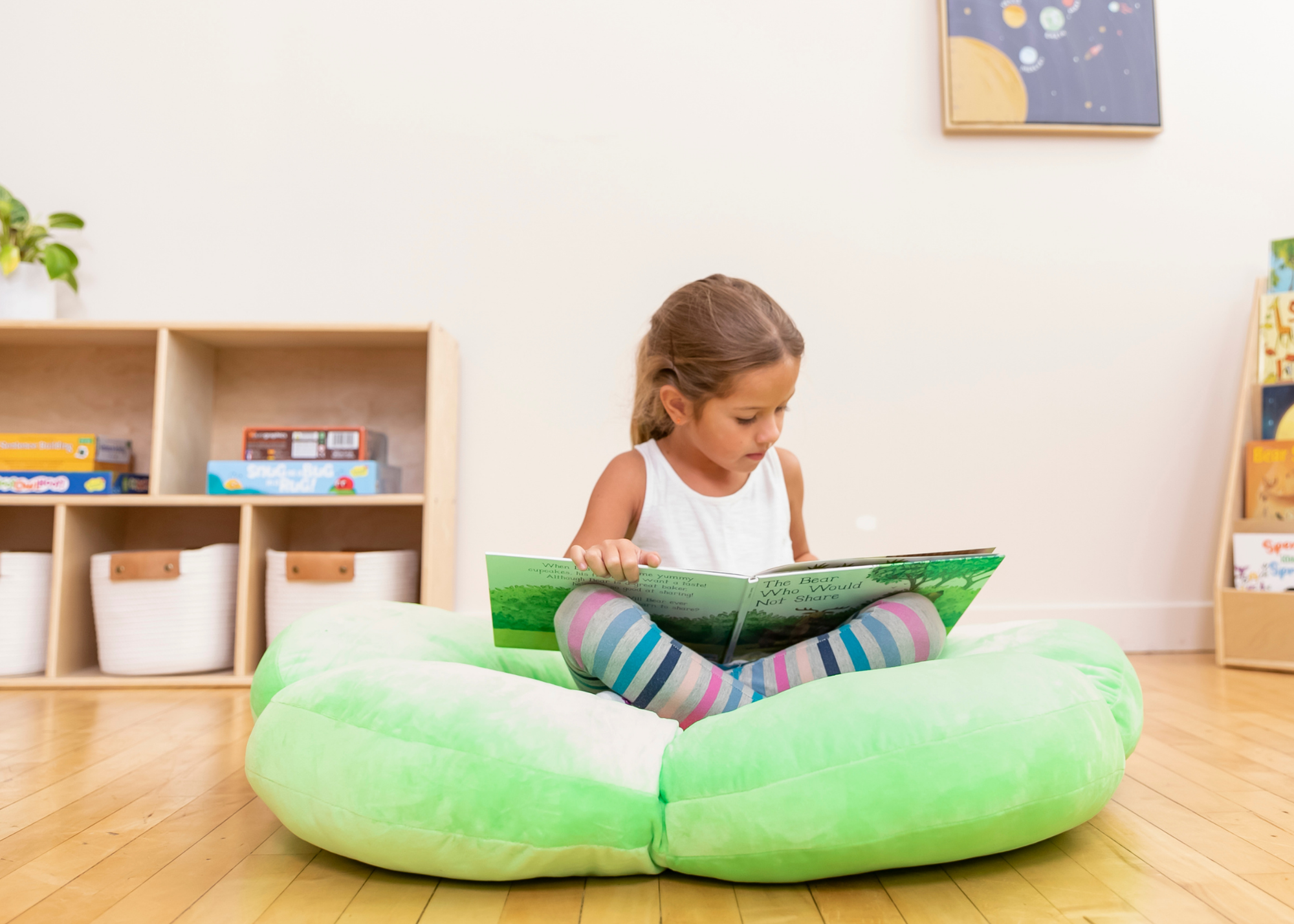Young children experience emotions with an intensity that can feel overwhelming for both them and the adults caring for them. Understanding co-regulation as a supportive approach can transform these challenging moments into opportunities for emotional growth and connection. Kids ages 2-5 are still developing the tools they need to manage their feelings and behaviors. Co-regulation is the developmentally appropriate process of helping children manage ups and downs with the help of a calm and supportive adult.
Co-regulation helps children navigate intense emotions alongside a caregiver. Calming strategies are modeled until kids are able to do it on their own. It’s very normal to feel a stress response when a child is upset. The caregiver should manage their emotions first.
- Take a deep breath
- Speak in a calm steady tone
- Remind yourself: The child isn’t giving you hard time, they are having a hard time.
Challenging behaviors are a sign that a little one is struggling with emotions too big to handle alone. Offering first/then options can sometimes help.
- Example say: “First we will calm down with a sensory jar, then we will get help to rebuild your block tower.”
Kids need help making sense of their feelings. Caregivers can use language that is gentle, supportive, and affirming. To build emotional safety and trust you can use phrases like:
- “Name your feelings.”
- “I hear that you are mad.”
- “You really want that block, and you don’t want to wait.”
- “Can we visit a calming place?”
A calm down space can be a powerful co-regulation tool. This small area might include sensory options like a rocking seat, glitter jars, pop its, fidgets, or a soft pillow to hug. Suggest calming activities like a sensory table visit, read a favorite book, or visual aids for breathing techniques.

Movement can be a great option too. Go outside and run a few laps around the play structure or use the swings for vestibular input. Offer kids a few choices to see what feels best. Over time they can begin to recognize what works for them and seek it on their own.
Co-regulation is part of the developmental process. Just as we soothe an infant by rocking or, singing, we support young children by staying calm and offering responsive strategies. The outcome is helping children move from needing adult support to independently managing emotions. Through modeling, naming feelings, and guided strategies kids feel safe to learn. Big emotions are okay, we can handle them, and they don’t have to be faced alone!


